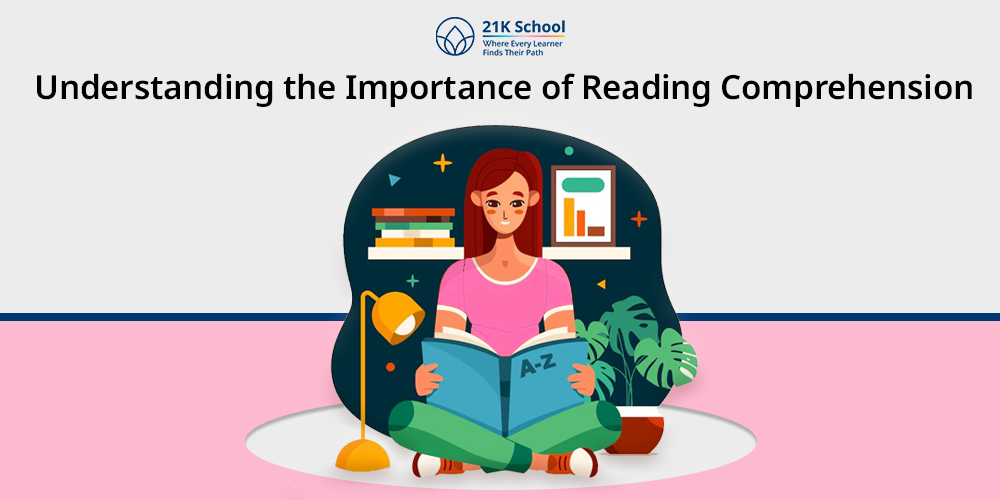
Can you explain how reading comprehension aids students in developing vocabulary?
Understanding is much more than just reading – it’s reading comprehension. However reading comprehension is a lifetime skill and not just in schooling.
Reading comprehension improves writing grades in school as well as work for both students as well as grownups, and written text has to be read.
Learning to read words, understand meanings and psychologically represent the text is necessary for this. Reading comprehension is the foundation of all other academic abilities.
They acquire vocabulary, acquire knowledge of the world and comprehend complex concepts. Adults who increase their reading comprehension comprehend work instructions more effectively. They are more productive at work, communicate better and live a much better life.
Contents
- 1 What is Reading Comprehension?
- 2 Top 14 Importance of Reading Comprehension
- 2.1 1. Establishes Learning Foundation
- 2.2 2. Improves Reading Skills
- 2.3 3. Improves Writing Skills
- 2.4 4. Boost Confidence
- 2.5 5. Boost Critical Thinking Skills
- 2.6 6. Stimulates Vocabulary
- 2.7 7. Improves Cognitive Development
- 2.8 8. Improve Memory Retention
- 2.9 9. Enhance Problem-Solving Skills
- 2.10 10. Improve Concentration
- 2.11 11. Create Empathy
- 2.12 12. Improves Learning Speed
- 2.13 13. Maximises Spatial Awareness
- 2.14 14. Helps in Informed Decision-making
- 3 Final Thought
What is Reading Comprehension?
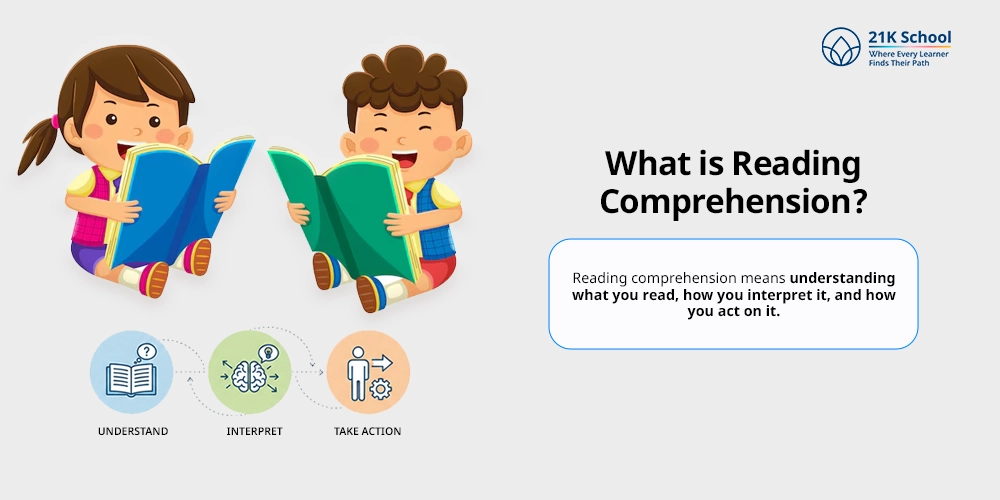
Reading comprehension means understanding what you read, how you interpret it, and how you act on it. All this writing requires deductive reasoning and critical thinking .
All readers – pupils, professionals etc. – need reading comprehension skills. It goes beyond just phonological awareness and word reading to vocabulary and grammar/syntax, and semantics – how you read texts.
Reading comprehension is creative thinking and problem-solving for students. People have to read to learn – to apply information for academic success, life & work productivity in general.
Top 14 Importance of Reading Comprehension
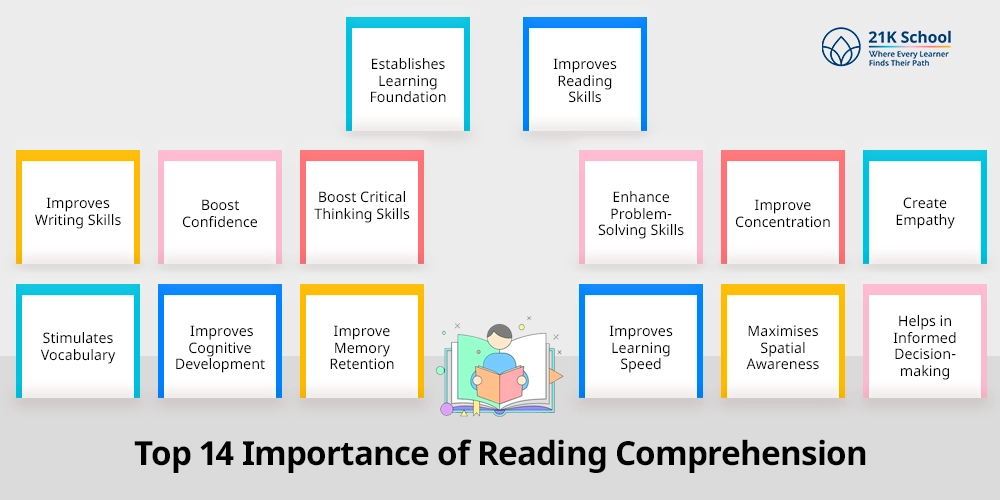
Reading comprehension goes beyond decoding words. That includes understanding how things mean to you, what decisions you make, and what you learn from reading material outside of textbooks. And it helps with reading, writing, self-esteem, and memory retention. Reading comprehension is necessary as well.
1. Establishes Learning Foundation
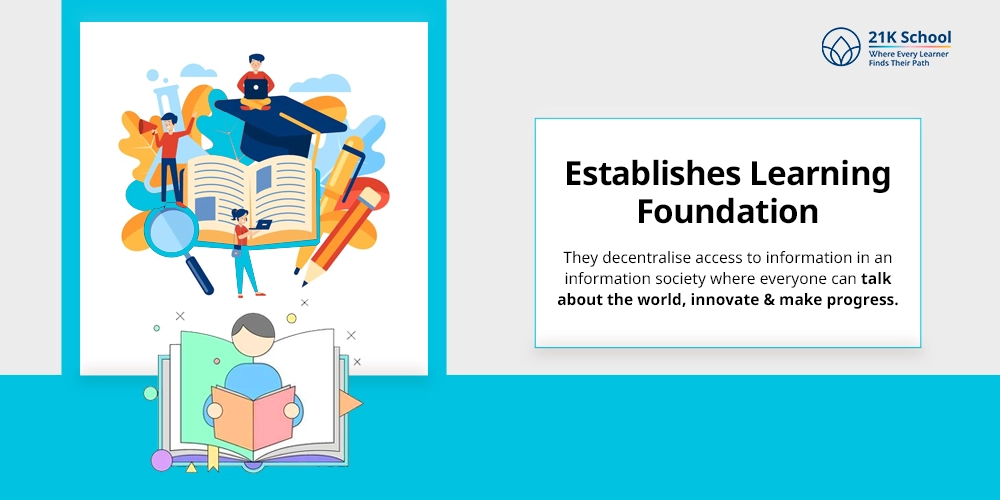
Most learning involves reading comprehension. It lets people take in information from books, articles and directions and learn about science, history and mathematics.
Without it, learning drifts apart because learners can not connect ideas and principles and thus impede academic and lifelong learning . They decentralise access to information in an information society where everyone can talk about the world, innovate & make progress.
2. Improves Reading Skills
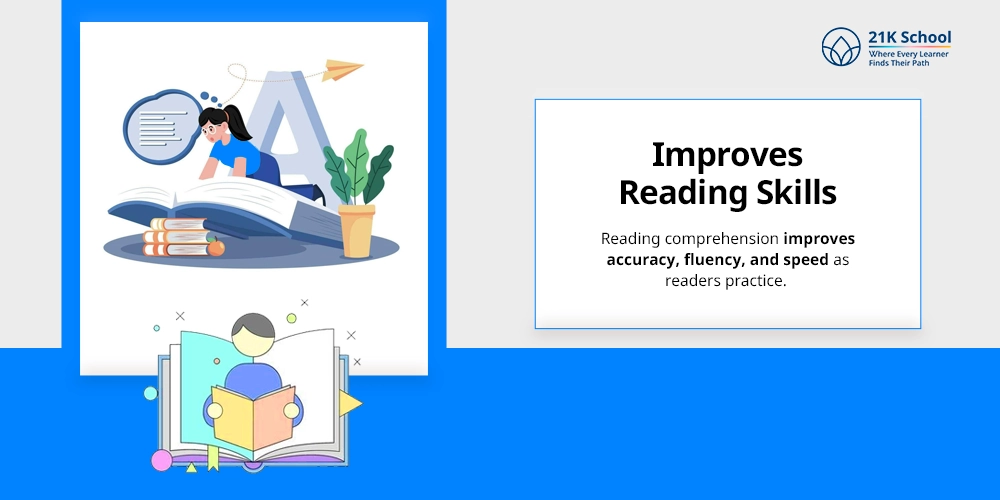
Reading comprehension improves accuracy, fluency, and speed as readers practice. That means decoding lengthy sentences, recognising context clues and meanings – reading becomes active and fun – therefore future reading experiences are going to be better and fun.
A person becomes more interested in literature/information and is therefore more involved in cultural artefacts such as novels, reports or digital learning content. They’re able to operate in information – saturated places of work.
3. Improves Writing Skills
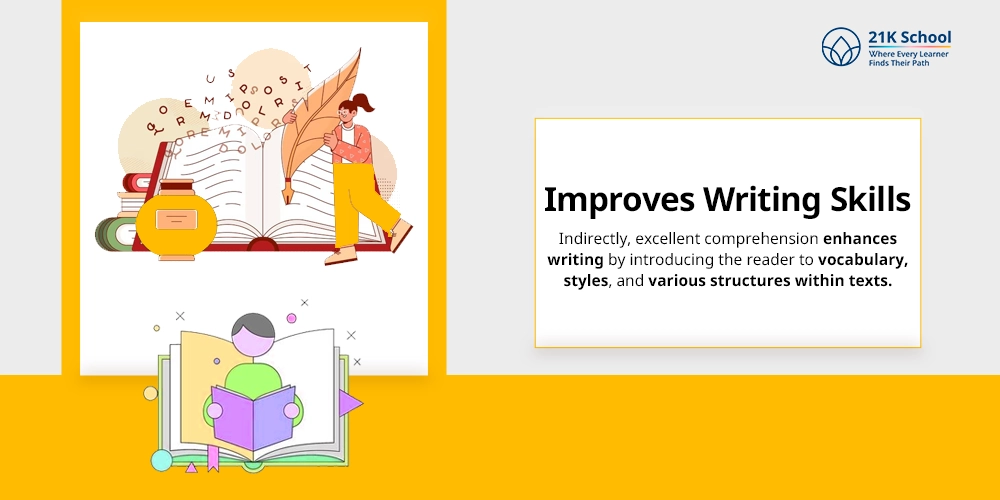
Indirectly, excellent comprehension enhances writing by introducing the reader to vocabulary, styles, and various structures within texts. Learn how writers group ideas – use rhetoric and argument in your own writing – and you will produce more persuasive writing that is grammatically correct!
Eventually, they become articulate thinkers who can argue on the social level in public discourse, cultural and policy narratives.
4. Boost Confidence
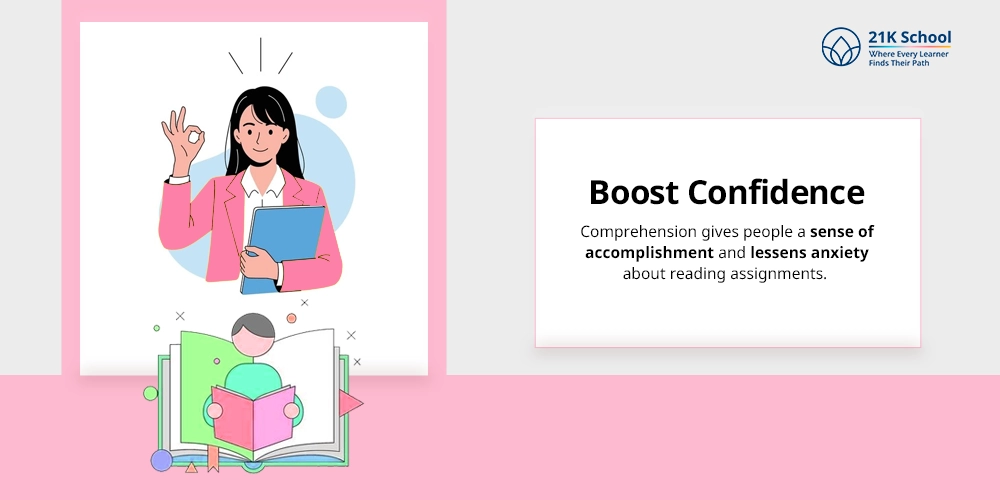
Comprehension gives people a sense of accomplishment and lessens anxiety about reading assignments. When readers do well with difficult material, they become more confident in their intellectual abilities and are able to do public speaking or problem solving, have a good self-image and accept new challenges.
In a number of groups, they combat self-doubt, mental health in children and educational equity for those who are underrepresented in education , careers and communities.
5. Boost Critical Thinking Skills
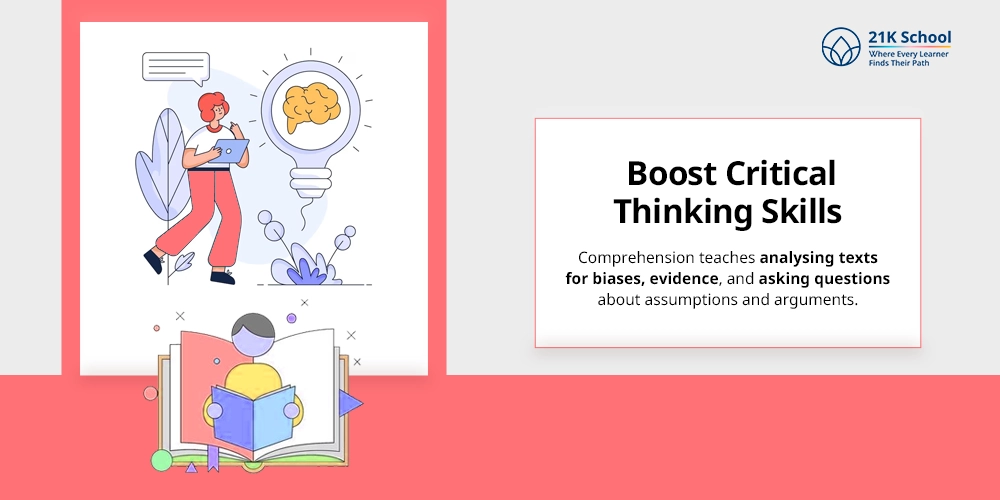
Comprehension teaches analysing texts for biases, evidence, and asking questions about assumptions and arguments. In a world filled with misinformation, this can help readers distinguish between facts as well as opinions, and it allows for rational debate on topics such as politics or ethics.
It’s essential in order to fight false information in media, science and politics and then to create a culture of discerning people who could judge moral dilemmas.
6. Stimulates Vocabulary
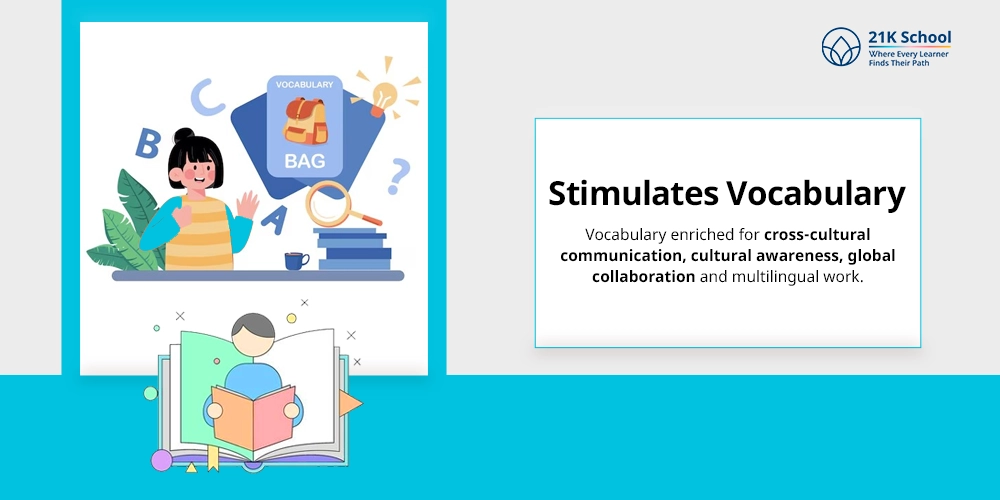
In many texts, new terms and idioms are contextualised. More than definitions, nuances and usages for communication in interactions, essays, and professional contexts are given to the reader.
Vocabulary enriched for cross-cultural communication, cultural awareness , global collaboration and multilingual work.
7. Improves Cognitive Development
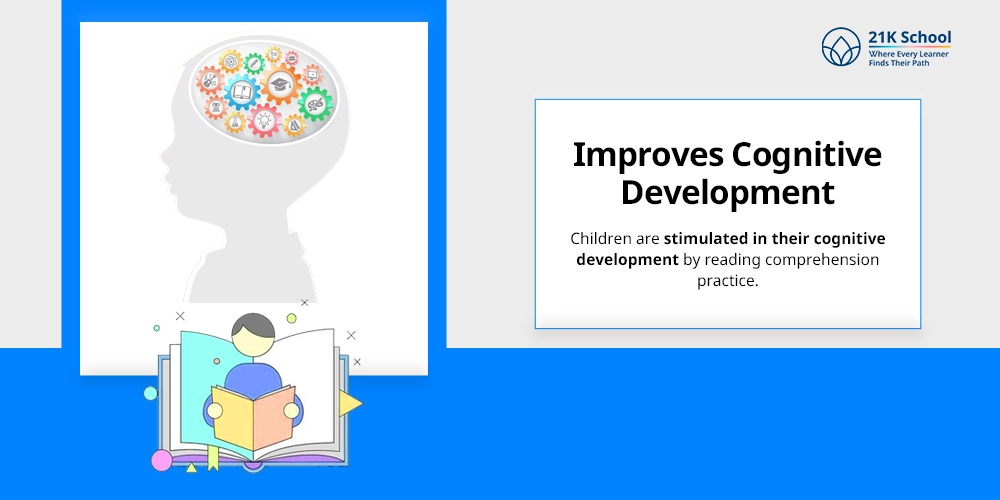
Children are stimulated in their cognitive development by reading comprehension practice. Comprehension leads to holistic mental retardation, ranging from linguistic processing to creative synthesis.
Pattern recognition as well as abstract thinking are part of this. It improves neural connections – language and reasoning – to promote good cognitive ageing as well as effectiveness in daily living on various tasks.
8. Improve Memory Retention
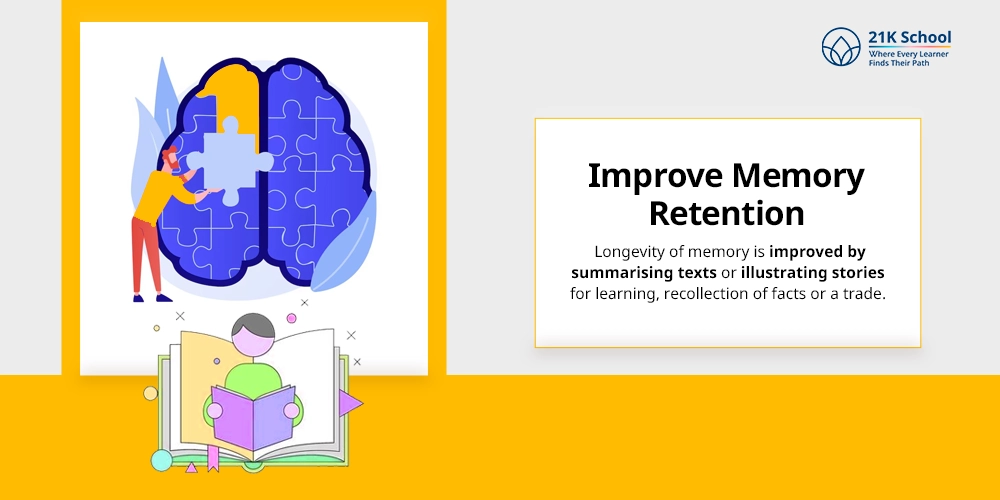
Reading comprehension links new information to old knowledge. Longevity of memory is improved by summarising texts or illustrating stories for learning, recollection of facts or a trade.
It helps students to recall concepts for examinations and personality development .
9. Enhance Problem-Solving Skills
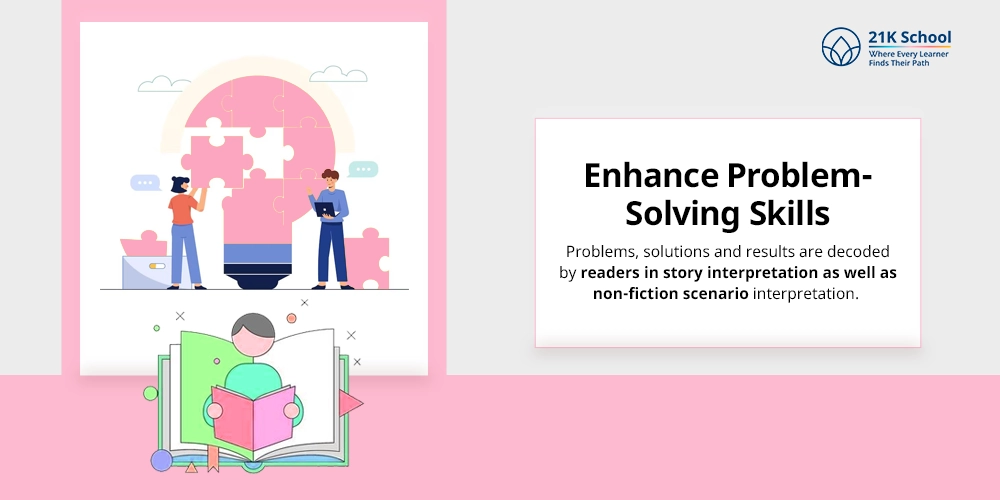
Problems, solutions and results are decoded by readers in story interpretation as well as non-fiction scenario interpretation. Training the mind to think creatively and systematically is like fixing office problems or fighting conflicts.
And it prepares them for more recent subjects like technology in education , projects, event planning and for real-world application experience.
10. Improve Concentration
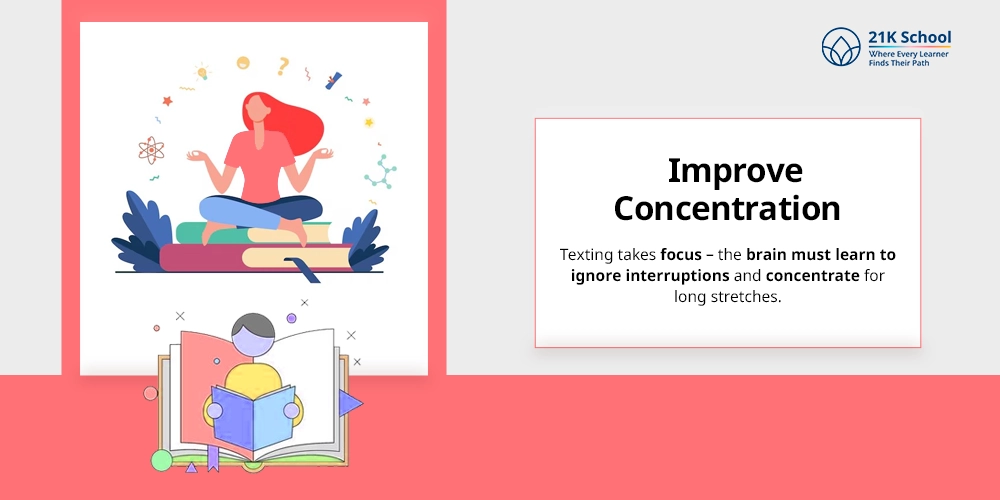
Reading helps with concentration. Texting takes focus – the brain must learn to ignore interruptions and concentrate for long stretches. It is also able to assist with attention deficits as well as reading-intensive tasks such as research or report writing, in an age of short-form media.
Students who have a higher focus tend to be more productive during intense study periods or online learning as a result of this higher focus.
11. Create Empathy
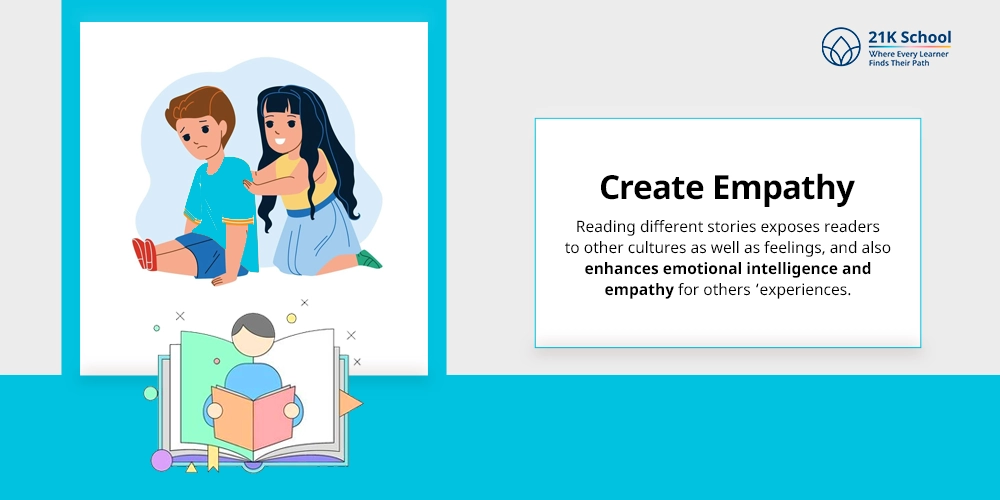
Reading different stories exposes readers to other cultures as well as feelings, and also enhances emotional intelligence and empathy for others ‘experiences.
This fosters compassion, reduces prejudices and fosters interpersonal connections as individuals view characters ‘struggles as well as triumphs as their very own. The students have the opportunity to take part in team activities, community service, counseling, etc.
12. Improves Learning Speed
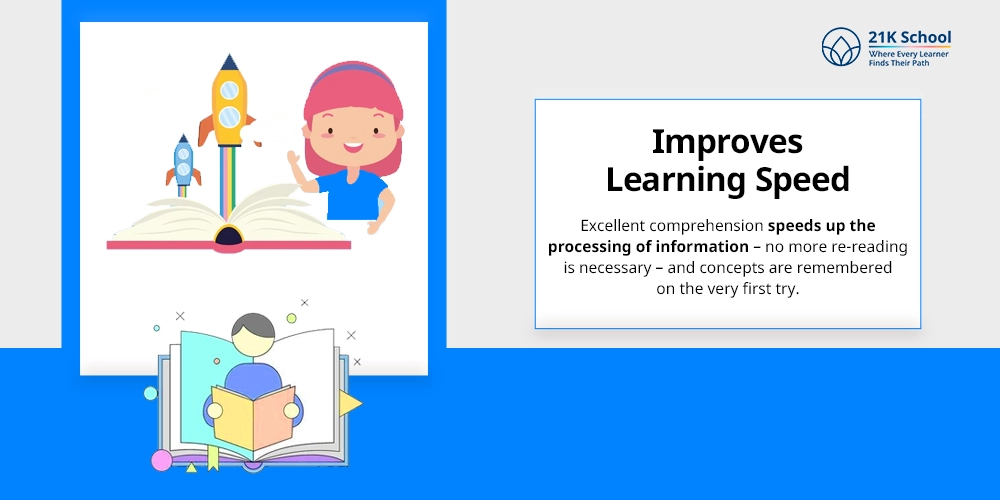
Excellent comprehension speeds up the processing of information – no more re-reading is necessary – and concepts are remembered on the very first try. In short term educational / career settings, this can make new subject acquisition much more effective and also allows quicker adaptation.
That enables them to go up the academic ladder from foundation grades to specialised courses with no deadline pressures and with a balanced personal development approach.
13. Maximises Spatial Awareness
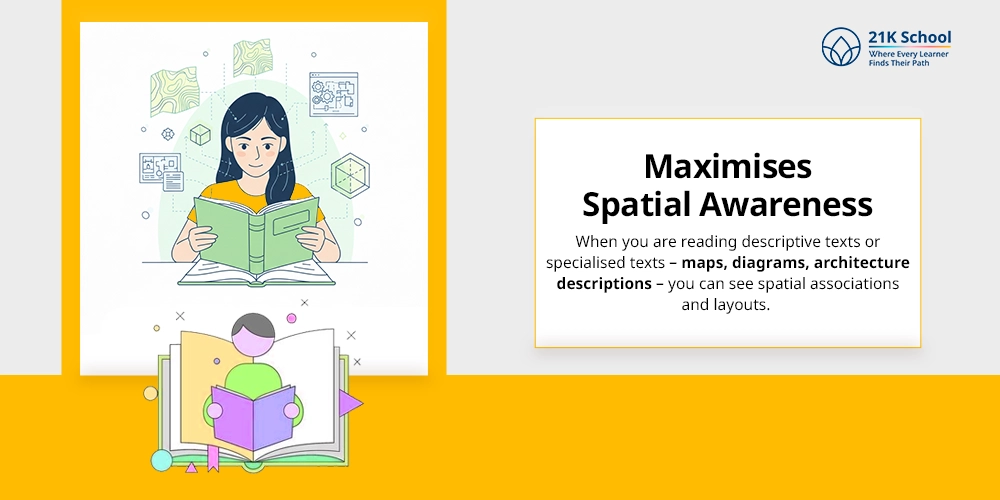
When you are reading descriptive texts or specialised texts – maps, diagrams, architecture descriptions – you can see spatial associations and layouts. It helps in navigation/engineering, design, daily orienteering, and visual data reading.
Spatial awareness is useful for practical tasks like concept mapping projects or sports strategies as well as for hobbies or career paths in visual-spatial fields.
14. Helps in Informed Decision-making
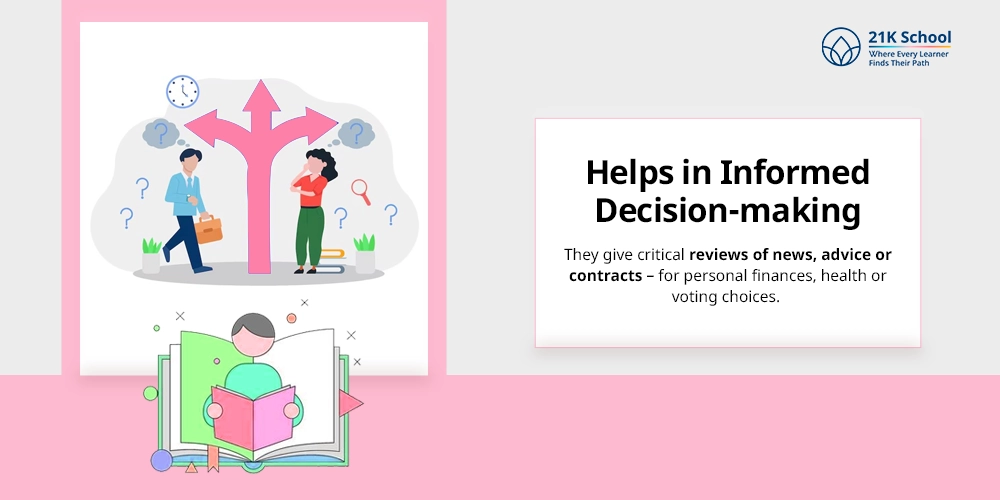
They give critical reviews of news, advice or contracts – for personal finances, health or voting choices. People who weigh pros & cons from reliable sources avoid pitfalls and make choices that are in line with their goals/values and live a more empowered life.
Students then have autonomy to plan for the future – career paths, ethics etc.
Final Thought
Reading comprehension is important – for students as well as for professionals. Vocabulary expansion, critical thinking and empathy, and efficient learning are part of it. It enables people to work and clear in a world of information.
Developing such an ability early on leads to better immediate educational results as well as long term adaptability, decision making and social involvement – true comprehension of what is read is a life giving activity.
